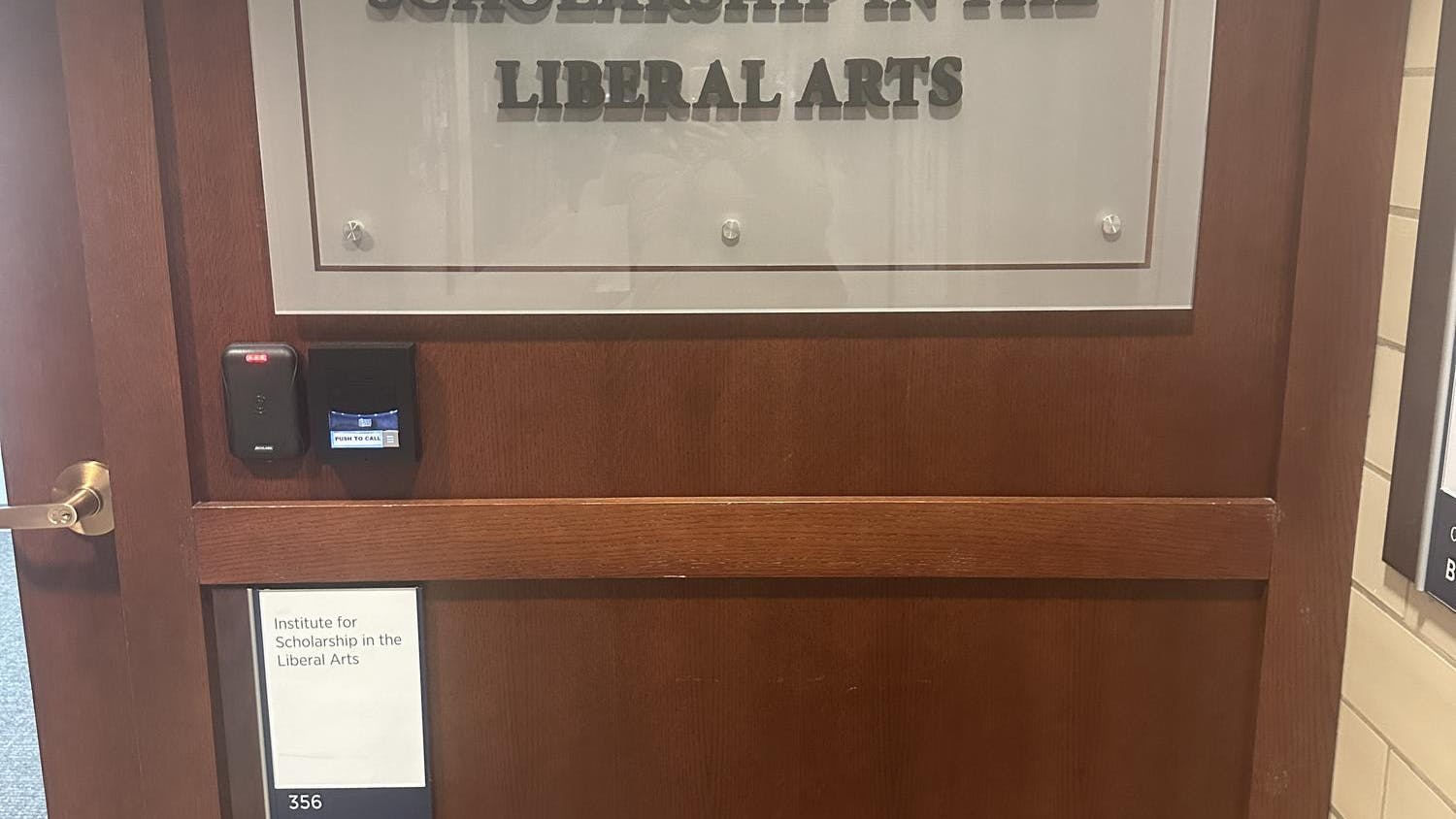Addressing a standing-room-only audience, Judith Butler, professor of comparative literature at University of California at Berkeley, gave a lecture titled “The Ethics and Politics of Non-Violence” on Thursday night at McKenna Hall Conference Center as part of the annual Yusko Ward-Phillips Lecture series.
Butler said it is not only difficult to define non-violence with certainty, but the principle of non-violence, once established, can also be easily misconstrued.
“A principled view on non-violence can sometimes be interpreted as violence. And when that happens those who make that interpretation consider it to be the right one, and those whose actions are being interpreted as violence consider it to be very wrong,” Butler said.
“Even if non-violence seems like a solitary act, it is mediated socially and depends on the recognition of conventions governing non-violent modes of conduct.”
Butler said these principles of non-violence are often subverted by opposing social structures. In particular, the police response to the 2011 student protests at University of California at Berkeley, during which unarmed students were allegedly beaten, demonstrated a challenge to the established protocol of non-violence.
“What happens increasingly often is a deliberate policy meant to suspend or nullify recognition of the conventions of civil disobedience. ... This opens the way to construe non-violence as violence.”
Butler said the traditional conception of self-defense when discussing non-violence is an important one to consider, as it submits that killing for the safety of loved ones is justifiable. This exception to the principle against killing, however, eventually leads to ethical conflict.
“The exception to the rule is important, perhaps more important than the rule itself. If there are exceptions to the prohibition on killing, and if there always such exceptions, this assumes that the prohibition on killing is less than absolute,” Butler said.
Though people usually accept killing in defense of loved ones, they are not as willing to kill in defense of those with whom they have no relations, she said.
“A dubious distinction emerges between those who are close to one in the name of whose protection one may commit violence, and those in the name of whose defense one may not kill,” Butler said.
“You’ve started with a pacifist who makes a couple of distinctions, but now we see that the logic according to which those exceptions are made is on a continuum with a certain war logic.”
“The distinction between populations that are worth violently defending and those that are not implies that some lives are simply more valuable than others.”
To solve this ethical dilemma, Butler said it is important to uphold the equality of all lives, no matter how different.
“I’m suggesting that a thoroughly egalitarian approach to the preservation of life ... that subscribes to a notion of rational democracy that is usually left out of the ethical considerations of how best to practice non-violence,” Butler said.
Butler said there is much opposition against this inclusive form of non-violence, and as such, supporters of this policy should expect criticism.
“Such allegations are meant to paralyze the speaker, distort the position against war and violence. ... When that happens, the critique of war is actually misconstrued as a battle-cry,” she said.
Despite this conflict, Butler said it is important to seek out like-minded groups willing to uphold this principle of non-violence.
“It’s important to hope, but to embody the hope in action, to link arms and minds to form that overwhelming solidarity,” Butler said.
Read More
Trending









